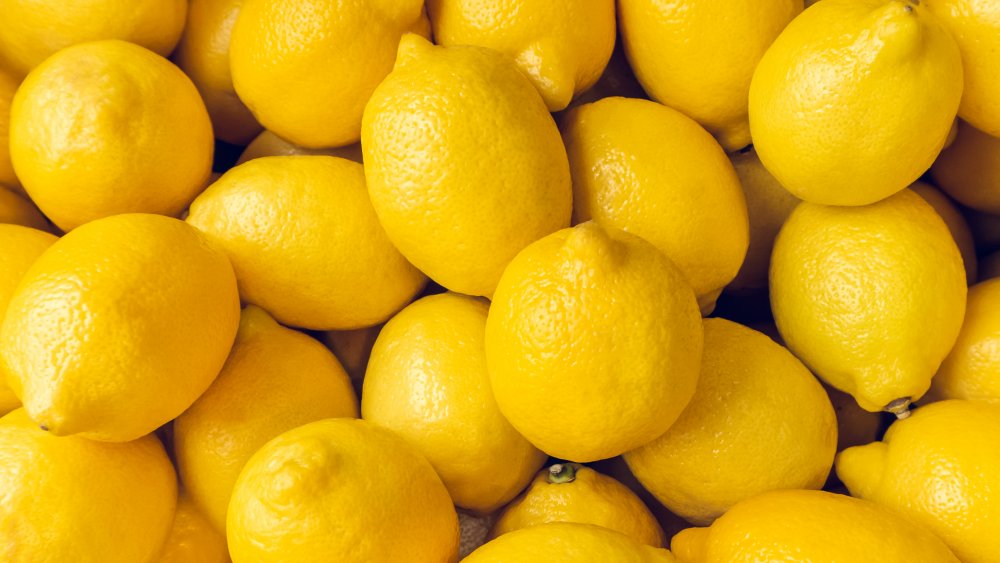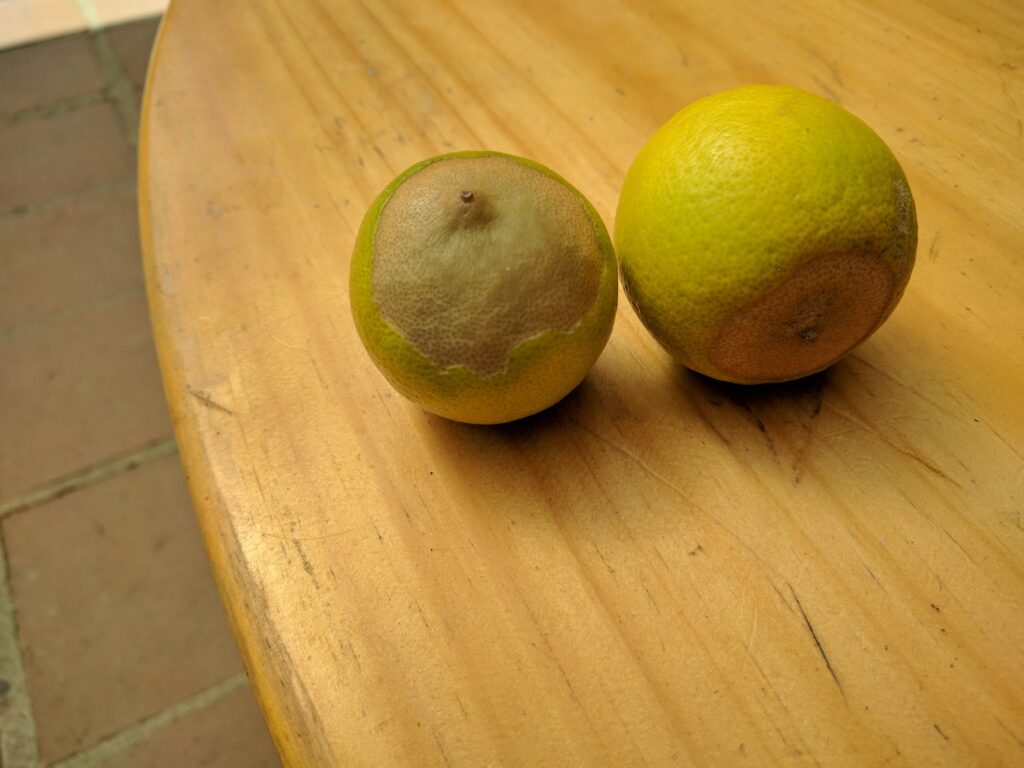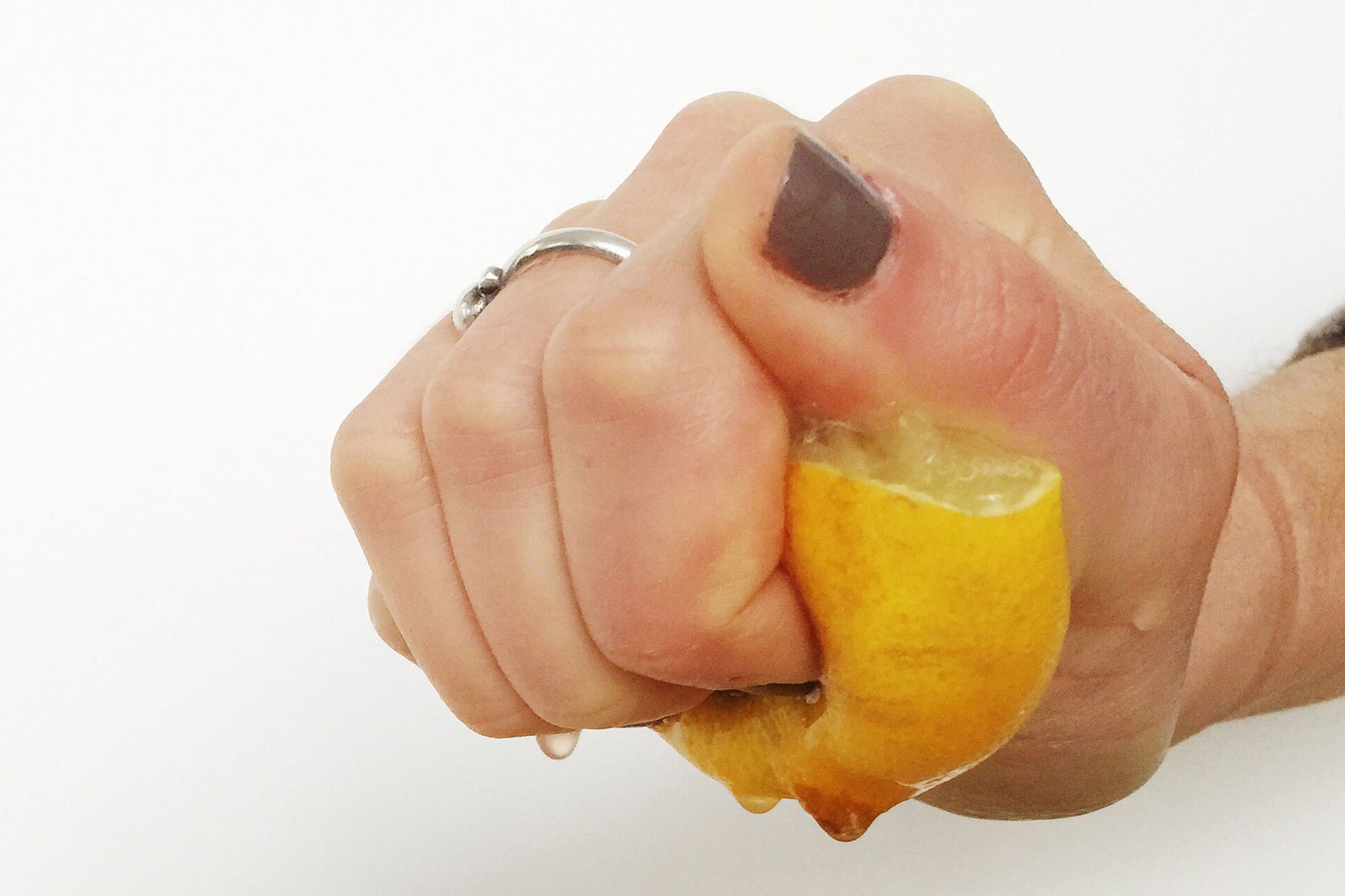Lemon fruit is a small evergreen fruit in the flowering citrus family, but when you see a soft lemon fruit, there are one or two reasons why it’s soft.
Your lemons can go soft even before they are ripe. But it might raise questions to you, and they might become soft either on the tree or in the storehouse.
As a gardener, you can choose to grow lemons for home or commercial use, but most people grow them for home consumption.
You can grow lemons in a container or in a garden directly like other citrus hybrids depending on your home’s location and surroundings.
People use lemons in small portions to add flavor to meals. Because of the sour taste, you may not consume lemons alone, so most people add them to drinks and meals.
Lemons are a good source of Vitamin C and bestow flavor to sauces; you can use them as marinades, baked goods, salad dressings, drinks, and desserts.
So the question is, why the soft lemon fruit?
1. Ripeness causes soft lemon fruit

Lemons might become soft simply because they are ripe, yellow, and ready to eat. Still, they might remain green but juicy and ready.
In other words, you can not determine a lemon’s ripeness depending on color alone because both green and yellow lemons can mean readiness.
2. When you leave the lemons on a tree for a long time
If you grow lemons and perhaps you are not sure when to harvest them, you might find yourself waiting for too long to pick them off the tree. Hence becoming over ready and the lemon fruit will become soft.
The size may not tell you so much when the lemon is ready, and you might have to taste it first; if it’s juicy, then it is ripe.
3. Neglect causes soft lemon fruit
When you grow container lemons, you need to continually water the tree because it doesn’t have the natural moisture like the one you directly plant in the ground.
When you forget to water the container lemon plant, it will dry out due to high temperatures if it’s the summer season.
So the tree gets dehydrated, and this results in the lemon fruit becoming soft.
4. Disease leads to soft lemon fruit

Sometimes lemons might become soft even before getting ripe! This situation comes as a result of diseases that attack the lemon tree. Brown spots and molds accompany lemon softness when infection sets in the tree.
Diseases such as root rot, melanosis, greasy spot, sooty mold affect lemon trees leading to soft lemon fruits.
How to use soft lemon fruit
Are you wondering whether you can eat the soft lemon fruit?
The answer is here; No, the fruit might have molded, has an unfresh smell, and awful taste.
But if the soft lemon does not have any of the above,
1. Flavoring using soft lemon fruit
You can use soft lemon fruit for flavoring your meals rather than consuming it as fresh fruit or juice.
2. Household cleaning for soft lemon fruit
You can also use a soft lemon for your household cleanup, like slicing it and placing it in the garbage dumping to freshen it up.
Tips to encourage fruit on lemon trees
When growing lemons, you need to understand what to do and have your tree produce fruits.
A lemon tree that produces blossoms can produce fruits.
However, a lemon tree that doesn’t produce blooms will find difficulty in bearing fruits.
When you are growing lemon trees, the most unpleasant feeling is when you are waiting for fruits but in vain.
Let’s first see why there are no fruits on a lemon tree;
1. Lack of blooms

In lemon tree growing, flowers lead to fruiting. Which means when the lemon tree is not blooming, it will not produce fruits.
2. Lack of nutrients
If a lemon tree plant lacks nutrients, it will have no energy to survive and bear fruits.
The tree will be unstable because it lacks phosphorus, which boosts blooming that brings fruits.
3. Distasteful watering
Lemon trees grow well in well moist soils. So if the ground where a lemon tree plant is always dry, fruit production will be insufficient.
Even too much watering makes the tree unhappy because it leads to root rot. The rotten roots cannot sustain fruit-bearing.
4. Incorrect cultivation

When you grow lemons in poor soils unsuitable for them, it will lead to no fruit on the lemon tree.
They enjoy light soils because they are well-draining and make cultivation easy.
If you choose a heavy type of soil, which is not loamy, lemon trees’ growth will not be smooth, affecting fruit production.
5. Bad rootstock
When a lemon tree has a horrid rootstock, it will result in low or poor quality yields.
When the rootstock fails to sprout and grow, it will not produce fruits hence no lemon fruits on a tree.
6. Blossom drop
When blossoms drop off a lemon tree, newly forming fruits might fall in the process before they begin to grow.
Remember, we’ve said in this article that blooms lead to fruit growth on a lemon tree. So when sprouts fall off, they affect the newly developing fruits.
7. When the tree is not mature enough
A lemon tree might have blooms but still fails to produce fruits! This situation is possible when the tree is not yet old enough to bear fruits.
Maybe you need to be a little more patient because fruiting for lemon trees occurs between three to five years, depending on the rootstock.
8. Exposure to cold
Citrus hybrids do not embrace too much coldness; they enjoy warm temperatures.
So when lemon trees get exposed to cold winds or low temperatures, fruit production will be affected.
How can you get a lemon tree bear fruit?
After knowing why a lemon tree has no fruit, you need to fix the issues.
Below are the solutions to the above problems to encourage a lemon tree bear fruits;
1. Add fertilizers frequently
Frequently fertilize the soils to plant a lemon tree to add nutrients and energies for fruit production.
Add fertilizers mainly in the spring season and endure more phosphorus nutrients because it encourages blooming hence fruits on a lemon tree.
2. Proper watering
Water the lemon tree frequently in spring and summer to avoid the soils from drying out completely.
Slow and deep watering is good as it helps the soil absorb more water, and this is what a lemon tree wants to bear fruits because it enjoys moist soils but not soggy.
Reduce the amount and frequency of watering a lemon tree during the winter because it will make the soil very wet.
3. Favorable location
Choose a proper warm location for the lemon tree to fix the issue of exposure to coldness. A lemon tree will bear fruits when under warm temperatures, not below 40°F.
Put the plant on the southern side of your house to avert the damaging and cold northern winds from hitting the lemon tree.
When you anticipate freezes, use thermal covers or old blankets to safeguard new buds or little fruits.
4. Prevent the pests and diseases
Spray any pests and diseases because a healthy plant produces plants.
The earlier you prevent these pests before they do much harm, the better for the lemon plant. It will regain its health and bear fruits with no affliction from the insects.
Bottom line
Lemon fruits can fail to bear fruits if they are in unfortunate predicaments such as inadequate watering, cold temperatures, pests, low cultivation, etc. If you correct these, you can keep your tree healthy again and bear fruits.
Frequently Asked Questions
Sweet lemons are good and terrific sources of vitamin C, useful in treating the common cold, sore throats, and dehydration. Some people use sweet lemons to ease gastrointestinal problems, upswings liver function and acts as a natural antiseptic.
You do not need two lemon trees to make a lemon tree produce fruit because lemon trees, like other citrus fruits, are self-fruitful. Even when you have one lemon tree, it can produce fruits by itself.
For a lemon tree to grow, it needs well-draining soil. It has to be a light loamy, sandy soil, or any other soft type of soil. Lemons need an abundance of water to grow, though the surface should not become soggy in a container. Water a lemon tree when the ground becomes dry.
Sweet lemons are a diverse group of citrus hybrids that contain low acid pulp and juice with less citron percentage.
